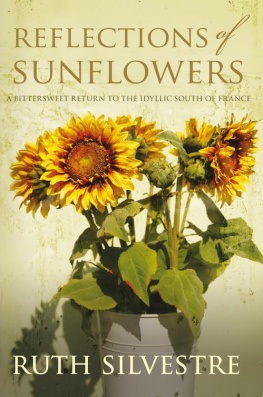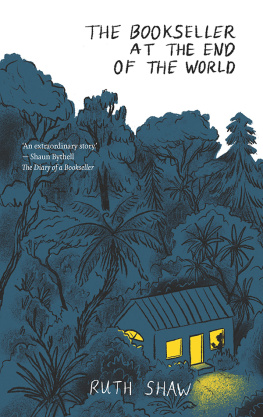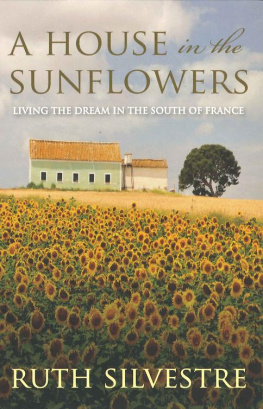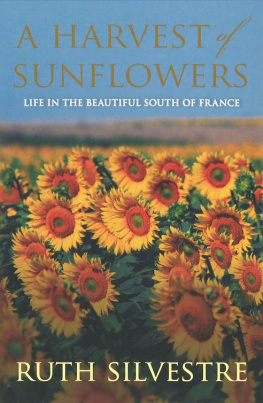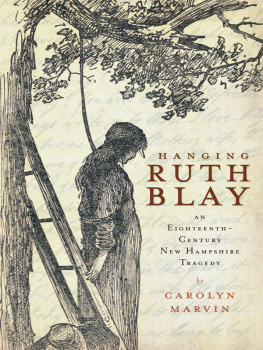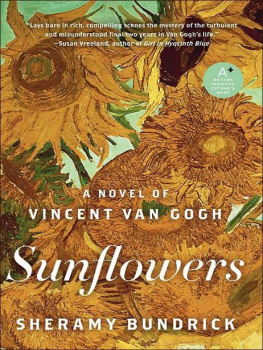Both romantic and funnythe book lovingly portrays the people, history, food and traditions of this beautiful French region
Summer Break Magazine
Exubertantly detailedthe authors great merit is that she makes us accept it on such enchanting terms
The Observer
Fine attention to detail and a full sense of the Frenchness of life. Readersshould enjoy this book with its real taste of Aquitaine
Oxford Times
Our past twenty-four summers have been spent at Bel-Air, our second home in south-west France, with a brief, gardening visit in early spring. Well, thats a first! I remember a bright young woman completing a survey at Gatwick saying, when we gave To cut the grass as our reason for flying that April. This year however, a year in which we had expected to celebrate our quarter of a century in this lovely corner of France, brought unforeseen challenges.
In January my husband Mike was diagnosed with colon cancer. Fortunately, an operation was swiftly organised but our usual spring visit was, of course, impossible. The grass did not get cut. Would we even see our garden that summer? It seemed unlikely. In the frightening realities of a crowded hospital even our London home became, for me, just a place in which to sleep between long, anxious hours by his bedside. Our other home in France seemed a far-away fantasy. Bel-Air stayed shuttered and silent.
At long last, the news was better. A summer visit became a possibility. We both longed to go. For me the waiting was especially hard as I spent two days in June recording my first book, A House in the Sunflowers, for Isis Talking Books, and the memories of all our early adventures were re-awakened. By July, Mikes next hospital appointment was not for six months. We finally booked our tickets and kind friends opened and cleaned the house for our late arrival in mid-July. And there in the sunshine, the quiet and the sweet, clean air, we began the road to recovery.
Driving all the way not being an option, we put the car on the train to Brive, by far the easiest way to do the journey providing you do not get lost in Calais between the tunnel exit and the motor-rail terminal. After having done just that, I realised on checking the map with the written instructions that they did not agree. Nul point le navigateur, stick to the map next time. After an inevitable, tedious wait for the cars to be loaded we found our minute but comfortable cabin and while other travellers unpacked champagne and prepared to celebrate, we thankfully settled ourselves on the firm beds and slept for eight hours. Ingenious manoeuvres were necessary to wash and dress, but there was good coffee and fresh bread waiting in the station buffet before the sheer exhilaration of heading south.
It is a heavenly drive through the valley of the Dordogne in the very early morning. At Beynac we stopped for a drink. Not yet nine oclock, the first day-trippers were just arriving. In the nearby hotel, guests lingered contentedly over petit djeuner. Like a cohort of black-clad space warriors, intrepid elderly cyclists in trendy helmets descended, red-faced, from the steep road to the chateau. They huddled briefly to check their maps before speeding away. The Dordogne, ageless and indolent, willows reflected in her dark water, advertised boat trips to see Les Quatre chteaux and I enjoyed my first jus dabricot, a drink inexplicably absent in bars in England.
We were reluctant to leave without at least going to see the magnificent chateau of Beynac a little closer, but it turned out to be even further up the steep road than we thought. When we turned the last curve and reached the top, the ancient bourg was silent and the castle towered above it, enormous and imposing. How powerful those medieval lords must have felt surveying their terrain from such a viewpoint. We postponed a real visit for another year and slowly wound our way home through the Dordogne and into Lot-et-Garonne.
We always call first at the large farmhouse on the edge of the village, where les Bertrands, Raymond and Claudette, our farmer friends live. We bought our house from them originally, they farm all the land around us and, over the years, have become like family. Claudette was picking strawberries. She stood up, waved and came to greet us with the bowl, almost full, under her arm. Raymond appeared from the barn and he and Mike wept as they embraced. We had made it after all.
As we drank outside in their flowered courtyard I noticed my large hydrangea, which normally stands in its pot by my porch, now here, sheltered by an overhanging shrub and covered in blooms. It had never looked so beautiful.
It was easier to bring it down, en pension with the others than go up to Bel-Air to water it, explained Claudette. My geraniums, my elephants ear and my great hibiscus, which my cousin David bought me as a small plant years ago, always descend to the shelter of farm when we leave at the end of September. Claudette has a specially constructed shelter where she overwinters her wonderful collection of plants. Chilean begonias, tibouchina, plumbago, bougainvillaea, and a huge lemon tree, all wait there for the last frosts to pass. It is prudent to wait. Not for nothing are Saint Mammert, Saint Pancrace and Saint Servais, all unfamiliar to me, called les Saints de glace, the ice saints. Their feast days fall in late May, and frosts as late as this are not unknown and can be disastrous in this region of plum orchards. These days safely past, and the sun grown stronger, all Claudettes tender shrubs are moved out into the courtyard to join the clematis, the oleanders and whatever new plants she has chosen for that season.
Ive already taken up some of the small pots and put you in a few petunias, she said. The key is in the door. It all looks very spick and span. Shes certainly worked hard, Susan. Mme pas une toile daraigne! she giggled. Theres not even a cobweb. The spiders round here are the fastest workers I know.
When, so long ago, we first set eyes on Bel-Air, our quaint little house, it had been empty for many years. The rough, stone walls were almost invisible behind tall, straggling, box trees and long neglected vines and creepers. Inside the air was thick with dust, one wall stained with a trail of green lichen and the well worn, old furniture shrouded in cobwebs so thick that one was sure that Sleeping Beauty herself must be nearby. A bat skimmed out from under rotting floor-boards, and looking up through the broken tiles one could see the sky. It certainly bore no resemblance to the kind of properties one now sees on those endless TV programmes where hopefuls search for their dream home in the sun. No designer kitchen here, no luxurious bathroom, no lavatory or even running water; just a well with a broken pump and yet we were so sure that it had been waiting just for us.
Now, the morning sunlight glinted on the long slope of the repaired roof. The pots of petunias that Claudette had planted flashed their bold colours from the low walls we had built in front of the porch. Even the brass door-knocker that I had bought in a junk market had been polished, a rare event. The windows gleamed. Inside it was just as Claudette had said, and, as usual, she had put flowers on the long table and a bottle of wine. But it was so extra especially clean. We marvelled as we went from room to room. We knew how much hard work had gone into this transformation by Susan, encouraged by her mother, our old friend Ursula. Ursula, grandmother of thirteen and great grandmother of twenty-three at the last count, had arrived to see us many years ago on her horse because shed read the first book about Bel-Air. Susan can turn her hand to anything and has her mothers style and energy. She had left our house sparkling.

